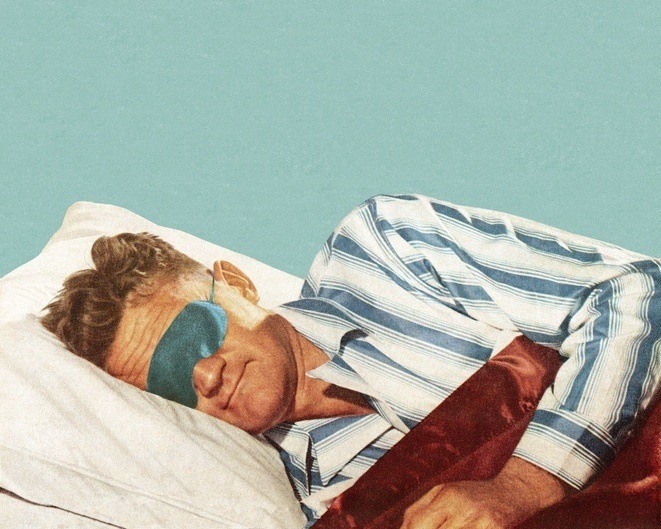What is Sleep Divorce?
A “sleep divorce” is when a couple lives together, but does not sleep in the same bed. We have a cultural expectation about the proxemics of sleep in marriage. “Sleeping together” means all is well. Sleeping apart invites a negative assumption on the quality of the relationship. The purpose of this post is to offer afflicted couples a more balanced way of looking at the problem of inadequate sleep because of one partner’s behavior. If poor sleep is impacting your relationship, learn everything you can about whatever issue you are struggling with.
Architectural Digest in 2017, called dual master bedrooms “the hottest new amenity in luxury homes.”
There is a dynamic tension operation here. While sleeping, we are prone, unconscious, and vulnerable. And when we are vulnerable, we tend to take comfort from our connection to our intimate partner.
Why is the Notion of Sleep Divorce Gaining Traction?
Most sleep experts agree we need at least 7 hours of sleep each night. Research tells us that sleep deprivation and relationship problems often co-occur. That’s because sleep-deprived people are more irritable and argumentative in their social interactions than those who get adequate sleep.
A 2014 study, reported that couples who experienced poor sleep during a two-week period reported more frequent marital conflict than those who got sufficient amounts of sleep.
National Sleep Foundation spokesperson Natalie D. Dautovich, Ph.D. also reminds us of the importance of sleep and physical health. “Among many other functions, healthy sleep is important for healing and repairing the heart and blood vessels, reducing the risk for obesity, promoting healthy cognitive functioning, and promoting a healthy immune response. Natalie D.Dautovich.
There’s no doubting that an adequate amount of restorative sleep is vital to your health and well-being. So what do you do when snoring, apnea, insomnia, or restlessness in your partner deprive you of the sleep you need?
A sleep clinic is one option. But there’s also great research-based healthy sleep information online. For example, check out the blog at www.sleepstandards.com.
The Other Side of the Bed…7 Benefits of Sleeping Next to Your Partner
- Fall Asleep Faster and More Soundly. If you are a wife whose marriage is in relatively good shape, 2010 research suggests that sleeping next to your husband might promote your falling asleep faster, and more soundly.
- Better Relaxation Response. According to research published in the Wall Street Journal, mental activity makes it difficult to sleep. Sleeping next to someone you love is promotes falling asleep faster because it provides a “secure” feeling which allows your mind to relax.
- Lower Blood Pressure. Researchers from the University of North California conduced a sleep behavior research study with almost 60 women. They asked all participants to record all their hugs and cuddles, with their spouse in a diary. Their blood pressure and oxytocin levels were periodically checked. The research findings were clear. Women with the highest levels of oxytocin had the lowest blood pressure.
- Lower Cortisol Production. Researchers now know that it is the skin to skin contact that sends signals to your adrenal glands to stop producing the stress hormone cortisol.
- Lower Anxiety. Touch is a powerful force for personal health as exciting research from the University of Virginia has demonstrated. Psychologist James Coan administered MRIs to 16 wives and informed them they might experience some type of electric shock. The MRI scans indicated that the participants were bracing themselves and were stressed. When the women held each other’s hands their stress levels decreased measurably. However, when they held hands with their husbands, they became even more relaxed. And as we learned earlier, sleeping in bed with a partner reduces cortisol and leads to a surge in oxytocin, which helps protect the nervous system from fear and anxiety.
- Better Mood. There is a biomolecular basis for our emotions. When we have skin to skin contact with our spouse, it releases dopamine and serotonin, both of which alleviate fear and anxiety.
- Snuggling Strengthens Intimacy. Psychologist Richard Wiseman, from the University of Hertfordshire, conducted research during which they surveyed 1,000 people. They wanted to learn whether snuggling up to someone in bed has any effects on your relationship. The study subjects reported how close they slept to their spouse, as well as how emotionally close they felt to their partner overall. The most popular sleeping position for the couples involved was laying back-to-back (41%) compared to facing the same way or ‘spooning’ (31%) and facing one another (only 4%). The research suggested that proximity in bed and feeling emotionally close in the relationship were closely correlated. The closer the couples were in physical proximity while sleeping… the stronger their mutually felt emotional bond.
Do you really Need a Sleep Divorce?
The happier you are in your marriage, the more skeptical you should be about a sleep divorce.
It’s important to note that the presenting problem often obscures the more subtle benefits of sleeping next to each other.
Why do you want a sleep divorce? Be specific.
If it’s because of snoring or apnea, Go to a sleep clinic. Sleeping alone may restore your sleep for the short term, but ignoring their medical condition will impact your partner’s long-term health and well-being.
Whatever medical symptom is disrupting your partner’s sleep; snoring, restlessness, sleep apnea, etc….get help for it quickly. There are many effective treatments. Sleep science can help.
Human beings are quite resilient and can adapt well. While sleeping apart may seem like an obvious solution, going to a sleep clinic and actually treating the condition is a far better option.
While a “sleep divorce” is increasingly trendy, it discounts the real benefits of sleeping next to your partner.
Any behavior which disturbs sleep should be taken seriously. But don’t take the easy way out. Go to a sleep clinic and get help before your partner asks you for a sleep divorce.


